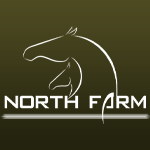Registered circuits, like AQHA, can be intimidating, especially with all the trainers in the practice ring and surrounding the show arena. However, it is possible to be successful as a do-it-yourselfer if you are patient, open-minded, and determined. Four do-it-yourself amateurs: Janet Deckman, Tina Freeland, Leona Parr, and Tanya Relander have found great success in this show realm, and we have their 5 W’s (who, what, where, when, and why) for success as a do-it-yourself horse show-er.
1) WHO Should You Have Access To?
All of the amateurs agree that getting someone to help is a necessity. But the question is who? Tanya Relander (pictured right) stresses that just because you are a do-it-yourselfer “doesn’t mean doing it alone.” Relander is known for breeding and showing many Congress and World Champions including the legendary, One Lazy Investment and Artful Investment.
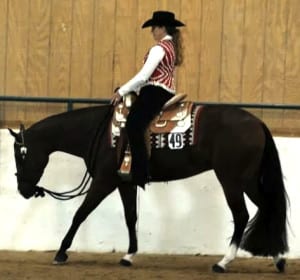 Relander continues by saying that the support person must be “uplifting and positive” and someone “to whom you can vent your frustrations.” Additionally, this person must be someone you “respect and trust his/her opinion and advice to help with how your horse and you look.”
Relander continues by saying that the support person must be “uplifting and positive” and someone “to whom you can vent your frustrations.” Additionally, this person must be someone you “respect and trust his/her opinion and advice to help with how your horse and you look.”
Amateur Tina Freeland of Knoxville, Tennessee advises that getting someone to video you either at home or the shows is beneficial since “it is very useful to be able to see yourself ride.” Freeland has shown Boston Aggravation to several Congress and World Top 10’s. Amateur Janet Deckma who shows JBL My Magic Dream in the all-around events agrees and adds that video can also establish “a benchmark to see what has been accomplished.”
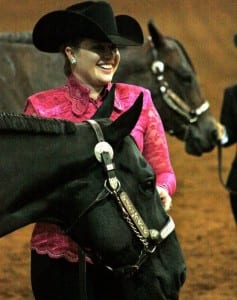 The amateurs also recommended getting to know the other competitors and show staff. Deckman who lives in Wright City, Missouri says getting to know the gate person is helpful: “You are still responsible for being there on time and entering into the correct class, but he/she can be beneficial in helping you with working orders and assuring you don’t miss your class.”
The amateurs also recommended getting to know the other competitors and show staff. Deckman who lives in Wright City, Missouri says getting to know the gate person is helpful: “You are still responsible for being there on time and entering into the correct class, but he/she can be beneficial in helping you with working orders and assuring you don’t miss your class.”
Deckman and Parr (pictured left) both suggested getting to know the show manager and office staff. Afterall, according to Parr, show managers “know everything going on at the show. They are there to help you.”
Relander also encourages riders that are going it alone to introduce themselves to the people stalling around them at shows and even exchange phone numbers: “This is invaluable information if any of the horses in the area need help.”
Parr continues this idea in suggesting getting to know fellow competitors in general: “You are all there because you love horses. You can develop friendships and have a great time at the show with them.” Last year, Parr was the Novice East Champions in the Rookie Showmanship with her horse, CU Choice Sensation.
2) WHAT Should You Avoid at Horse Shows?
Even though horse shows are mostly fun and rewarding, they do have a few downfalls. The most commonly mentioned one is the intimidation factor. One way to avoid getting intimidated at the shows is knowing what to avoid. Deckman addresses this issue when she says, “Do not be overwhelmed by those who seem to have everything: full-time trainer, expensive outfits, and a super high-end horse. Yes, watch awesome riders and great horses as you can learn so much from watching, but do not let it create self doubt.”
Parr who lives in Lexington, South Carolina continues this idea in saying, “Avoid comparing yourself to the other people showing. It’s not going to do anything but bring you down. If you are constantly looking at the other competitors and envying their horses, outfits, and trainers, it will make you stressed out and resentful of them.”
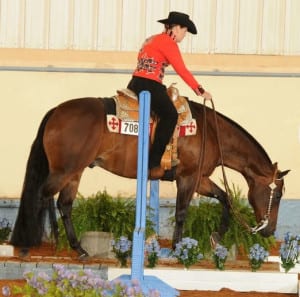 The training aspect is also a great concern for do-it-yourselfers. Concerning this issue, Freeland (pictured right) offers the following advice: “Make sure that your goals are realistic so that you do not get frustrated. Like most competitive sports, practice makes perfect. Horses in training programs are ridden 5 to 6 days a week, and as a do-it-yourselfer, sometimes it is not possible to ride that much. So, you must be aware that sometimes it might take you longer to reach your goals.”
The training aspect is also a great concern for do-it-yourselfers. Concerning this issue, Freeland (pictured right) offers the following advice: “Make sure that your goals are realistic so that you do not get frustrated. Like most competitive sports, practice makes perfect. Horses in training programs are ridden 5 to 6 days a week, and as a do-it-yourselfer, sometimes it is not possible to ride that much. So, you must be aware that sometimes it might take you longer to reach your goals.”
However, you are the one riding your own horse, not a trainer, so you will get to know the horse and be able to react quicker to situations that may arise in the show pen.
Relander who lives in Aledo, Illinois also commented on the training aspect: “When you get a workable formula down to prep your horse, avoid getting caught up in what others are doing to prep theirs. Be confident in your program. If you are not confident, watch others, ask questions, evaluate. Don’t jump into a major change,” especially at a horse show.
3) WHEN and 4) WHERE Should a Do-It-Yourselfer Ask for Help?
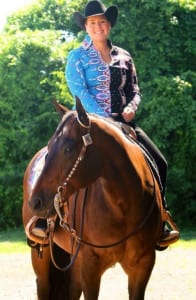 All of the amateurs agree the use of a professional trainer is necessary in some form, but this trainer must be flexible and understand that you want to undertake the training yourself. Freeland (pictured left) addresses her experience in this area: “It is very beneficial to enlist the help of a trainer to help you at some of the bigger shows. When you ride by yourself all the time sometimes you pick up bad habits that you don’t notice because you can’t be your own eyes on the ground. It’s great to be able to go to a trainer and get polished up before the big event.”
All of the amateurs agree the use of a professional trainer is necessary in some form, but this trainer must be flexible and understand that you want to undertake the training yourself. Freeland (pictured left) addresses her experience in this area: “It is very beneficial to enlist the help of a trainer to help you at some of the bigger shows. When you ride by yourself all the time sometimes you pick up bad habits that you don’t notice because you can’t be your own eyes on the ground. It’s great to be able to go to a trainer and get polished up before the big event.”
The difficultly often lies in finding a trainer who is willing to work with someone on a sporadic basis. Freeland suggests that you ask around and find a trainer that will suit your needs.
Deckman reinforces this in saying, “For me, my greatest help came from a trainer who allowed me to pull in on the weekend, take lessons for two days, and then send me home to work on all the things she had taught me.”
Sometimes it is necessary to leave your horse with a trainer temporarily. Freeland discusses her own experience in this area: “I had never taught a horse to do a flying lead change from start to finish. I did not feel entirely comfortable with that so I picked a trainer and sent my horse there for three months to get a lead change started. It worked out well.”
It’s okay to push your limits, but if you are truly uncomfortable with a certain element of your horse’s training, utilize a trainer temporarily to help you obtain the basics on which you can build.
In addition to utilizing trainers, Deckman suggests attending 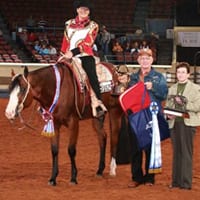 clinics sponsored by your state organization or AQHA. In particular, “The Ride-the-Pattern Clinics are a great source for insight into how a pattern should be executed or what a judge is looking for.” Often, these clinics are offered for free or at a discounted price for members of the organization.
clinics sponsored by your state organization or AQHA. In particular, “The Ride-the-Pattern Clinics are a great source for insight into how a pattern should be executed or what a judge is looking for.” Often, these clinics are offered for free or at a discounted price for members of the organization.
Finally, Relander (pictured above right with One Lazy Investment) offers excellent advice concerning the training of our horses: “You are a do-it-yourself-er—you only answer to yourself!” To avoid over-stressing yourself, make decisions that you feel comfortable and confident that the end result will benefit both you and your horse. If you have doubts, slow down and re-think the situation.
5) WHY should you use the Do-It-Yourself Approach?
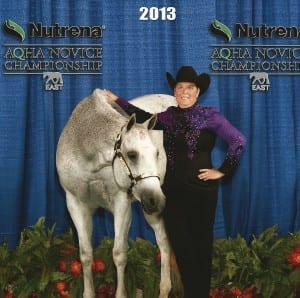 Do-it-yourself horse showing is appealing to many different personalities. It provides a challenge with great rewards when success is achieved through the feeling that your hard work and dedication has paid off. As Deckman says (pictured left), “Each accomplishment is sweeter knowing that you were the one that brought it to fruition.”
Do-it-yourself horse showing is appealing to many different personalities. It provides a challenge with great rewards when success is achieved through the feeling that your hard work and dedication has paid off. As Deckman says (pictured left), “Each accomplishment is sweeter knowing that you were the one that brought it to fruition.”
It also helps with budgeting necessities since many of us cannot afford to leave our horses at a trainer’s facility. As Parr points out, keeping our horses at home helps us build unforgettable relationships with our partners: “Spend time with your horse getting to know him/her by brushing and just relaxing. We got into showing because we love horses; keep that at the top, and you won’t go wrong.”
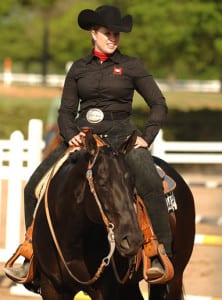 Do-it-yourself horse showing also appeals to that independent personality whose favorite saying is, “I can do it myself.” However, avoid becoming isolated because, according to Relander, being around others helps you “stay aware of schedule changes, times your class may run, where the best practice place is, the best restaurants,” and so on. Just be careful that your independent personality doesn’t entirely consume you at the shows.
Do-it-yourself horse showing also appeals to that independent personality whose favorite saying is, “I can do it myself.” However, avoid becoming isolated because, according to Relander, being around others helps you “stay aware of schedule changes, times your class may run, where the best practice place is, the best restaurants,” and so on. Just be careful that your independent personality doesn’t entirely consume you at the shows.
As competitors, we don’t like to admit that sometimes the best way to learn is to make mistakes. So don’t be afraid to become a do-it-yourself show-er because you might make mistakes. Learn from those mistakes and grow as an exhibitor. As Deckman says, “For me, the rewards are self-improvement and helping my partner be the best he/she can be.”
Do your homework, give it a try, and keep in mind the 5 W’s. Good luck!




